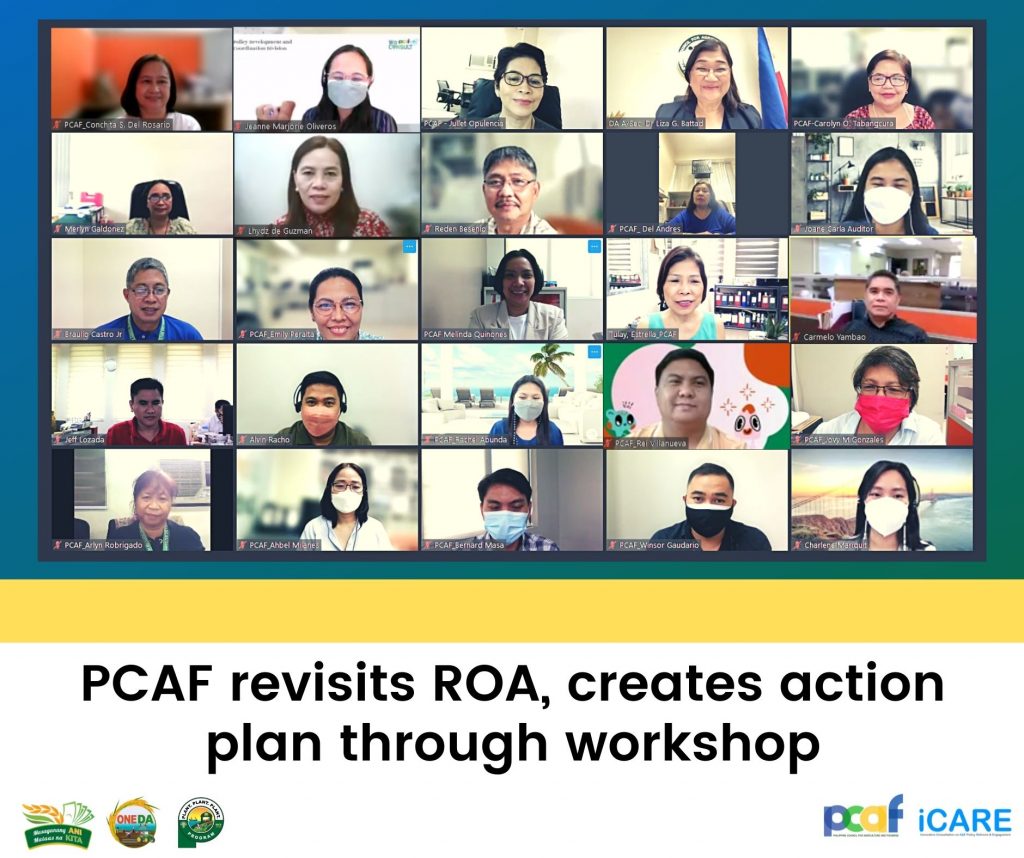
In line with its continual improvements on quality management system, the Philippine Council for Agriculture and Fisheries (PCAF) had a two-day workshop to update its risk register and identify risks and opportunities, and craft concrete actions to address these.
The workshop held on February 8 to 9, 2022 was attended by the Internal Quality Auditors, representatives from PCAF’s OUs and designated risk assessors in every division.
Partnership Development Division Chief Melinda Quinones introduced the differences between International Organization for Standardization (ISO) 9001:2008 and ISO 9001:2015 in the context of risk management. She mentioned that ISO requires an agency or organization to incorporate risk-based thinking in decision-making to provide more flexibility and satisfy standard requirements.
“Risk may not be necessarily negative, in every challenge there is an opportunity,” said PCAF OIC Executive Director Liza Battad.
She emphasized the importance of ISO 9001:2015 risk-based thinking in building confidence in the agency’s ability to consistently provide satisfaction while confirming to the value-creating strategic shift of the agency called Innovative Consultation for Agriculture and Fishery Policy Reforms and Engagement or iCARE.
She also pointed out that the latest quality management system improves governance by making preventive action part of PCAF culture and routine in all activities. Aside from this, Dir. Battad also said that by using ISO 9001:2015 risk-based thinking, it will establish a culture of improvement by being proactive.
A per division workshop ensued to work on three major issues from the ROA and do the Risk and Opportunity Assessment presented.
Each group deliberated the major issues, described the risk based on the severity and degree of control, calculated the risk rating, and identified the risk treatment actions.
Another workshop was conducted to focus on the Risk Assessment where the group identified the risk items, understood the nature of the risks (if acceptable and unacceptable), determined existing measures, and developed action plans to eliminate these.
To monitor the implementation of the action plans and assure continuous refinement of the ROA registry, a ROA team was created to oversee the progress of the measures. | JC











